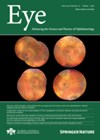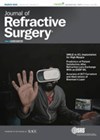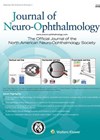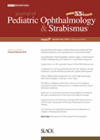You searched for "patient"
Current practice and patient selection for ISBCS in the UK
This study investigated patient and operative characteristics for immediate sequential bilateral cataract surgery (ISBCS) and delayed bilateral cataract surgery (DSCS). The annual NHS spend on cataract surgery is £500 million, a figure expected to rise by 50% in the next...Audiology and ophthalmology: A comparative perspective on diagnostics and patient care
4 December 2024
| Rosalyn Painter, Christopher Gordon, Anthony Vukic
|
EYE - Imaging, EYE - Vitreo-Retinal
I’m here with Chris Gordon and Anthony Vukic from Gloucestershire Hospitals NHS Foundation Trust to find out how two professions that may appear unrelated on the surface actually have a lot in common. Some of this article might surprise you....
Managing cataract surgery in a patient with diabetic maculopathy
A 56-year-old type 2 diabetic with previously treated bilateral diabetic maculopathy develops a cataract requiring surgery in the right eye. He has had grid laser previously, followed intermittently by intravitreal triamcinalone, Avastin and more recently Lucentis in both eyes. His...The last three patients: dermatology (Patient Three)
3 August 2023
| Jonathan Rees (Prof)
For the third and final reflection in this series (see Part 1 and Part 2), Professor Jonathan Rees recounts his experience of a patient with cancer who was failed by the NHS, and how their inadequate treatment illuminates some issues...
Informed consent in ophthalmology care in the UK: A critical component of patient‑centred practice
2 April 2025
| Ali Yagan
|
EYE - General
Informed consent is a cornerstone of ethical and legal practice in healthcare, particularly in fields like ophthalmology where specialised interventions can have significant implications for a patient’s vision and quality of life. In the UK, informed consent is not merely...
Patient satisfaction after refractive lens exchange with an EDOF lens
The aim of this study was to identify independent factors associated with postoperative satisfaction after refractive lens exchange with an extended depth of focus intraocular lens (EDOF IOL). Patients who underwent a refractive lens exchange with bilateral implantation of the...Do patient demographics influence AMD clinic attendance during COVID-19 lockdown?
3 June 2021
| Kumarapaksha Mohottalage Bhagya Mekhalani Weerasinghe, Jai Shankar
|
EYE - Vitreo-Retinal
The authors assess the impact of the COVID-19 pandemic on adherence to scheduled clinic appointments among age-related macular degeneration patients in a clinic in North Wales. The COVID-19 pandemic has significantly affected the population, affecting economic and social wellbeing, whilst...
Patient and clinician view of telemedicine for neuro-ophthalmology consultations when in-person is not possible
1 December 2021
| Lauren R Hepworth
|
EYE - Neuro-ophthalmology
The authors present a linked survey sent to patients and neuro-ophthalmologists after a consultation with one of 12 neuro-ophthalmologists from three centres in the United States, over a three-month period in 2020. All consultations were offered virtually due to restrictions...
Cytomegalovirus retinitis post intravitreal triamcinolone in an immunocompetent patient with juvenile glaucoma
1 December 2014
| Eneh Jones-Odeh, KS Lim, MR Stanford
|
EYE - Cataract, EYE - Cornea, EYE - General, EYE - Glaucoma, EYE - Imaging, EYE - Neuro-ophthalmology, EYE - Oculoplastic, EYE - Oncology, EYE - Orbit, EYE - Paediatrics, EYE - Pathology, EYE - Refractive, EYE - Strabismus, EYE - Vitreo-Retinal
Figure 1: Fundus photograph shows active CMV retinitis four weeks after IVTA in the right eye. Figure 2: Fundus photograph of the left eye with no CMV retinitis; atrophic disc as a result of juvenile glaucoma. Case report A 29-year-old...
Social media use in reporting patient’s surgical experience
This study evaluated the risk of social media platforms (TikTok and Instagram) in understanding patients’ strabismus surgery experience and relative popularity of related posts. Both platforms were searched in 2022 for strabismus terms and posts were graded as positive or...Changing the post cataract surgery review pathway – is patient safety compromised?
Cataract surgery continues to be the most commonly performed elective surgical procedure in the UK, with an annual rate of approximately 4150/100,000 people over the age of 65 accounting for a significant proportion of the surgical workload of most ophthalmologists...Patient and public participation shapes biomedical research and access priorities in eye health
1 December 2014
| Rod McNeil
|
EYE - General
Patients, clinicians and clinician-scientists play a valuable role in shaping the future of vision research. Limited funding demands targeted research initiatives that ultimately will shape health policy and practice to secure progress in improving patient outcomes in eye health. This...







